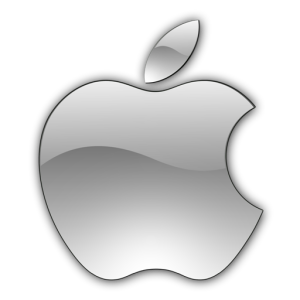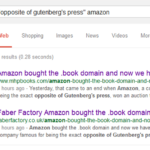
 From Melville House‘s latest ironically Ahab-like rant against their white whale, Amazon:
From Melville House‘s latest ironically Ahab-like rant against their white whale, Amazon:
Remember that ol’ lawsuit between Apple and the Department of Justice? …
Just a reminder: Apple is appealing because the case didn’t go smoothly the first time around. The company called it a “fundamentally flawed endeavor that could discourage competition and harm consumers.” Judge Denise Cote ruled that Apple had violated antitrust laws by intending to set ebook prices through the agency model.
The publishers couldn’t afford to fight, but Apple could. On Monday, the company’s lawyer called attention to its competition, as if no one had thought to bring up Amazon before…
Publishers were trying to set prices along with other retailers like Apple because Amazon owned 90% of the ebook market. [bold emphasis mine] Apple’s lawyer Theodore Boutros argued this week that this is a legitimate way to “come into a market dominated by a monopolist.”
And this from Forbes, which we can assume is more reliable than Apple’s paid advocates:
E-books now make up around 30% of all book sales, and Amazon has a 65% share within that category, with Apple and Barnes & Noble accounting for most of the balance.
Dominating your competition by 40 points and dominating them by 15 points are worlds apart. And, how many of those Amazon sales are due to their insanely user-friendly KDP self-publishing platform? Are we even comparing apples to apples? (Sorry, B&N, but your e-book self-publishing platform is clumsy. I use it, but it’s like you’re not even trying.)
And this logic! “Our anti-trust violations were to fight monopoly…” Orwell is rolling over in his grave.
So, for this reason, I am removing Melville House from the side bar and will no longer waste my time looking to them for reliable information on publishing. Their fevered prejudice against Amazon has gotten to the point where the ratio of information to hate has slipped decidedly toward maniacal hate.
As the Forbes story points out: “An abusive, alcoholic father; a snake-oil salesman; a predatory lion; Nazi Germany: These are some of the metaphors publishers invoke to express their feelings toward Amazon.” There’s no room for that sort of counterfactual idiocy among serious-minded professionals.


 In chapter 120 of the Chinese classic, Wen-Tzu’s Book of Pervading Mystery (
In chapter 120 of the Chinese classic, Wen-Tzu’s Book of Pervading Mystery ( From the New York Times:
From the New York Times: The Passive Voice blog
The Passive Voice blog 



